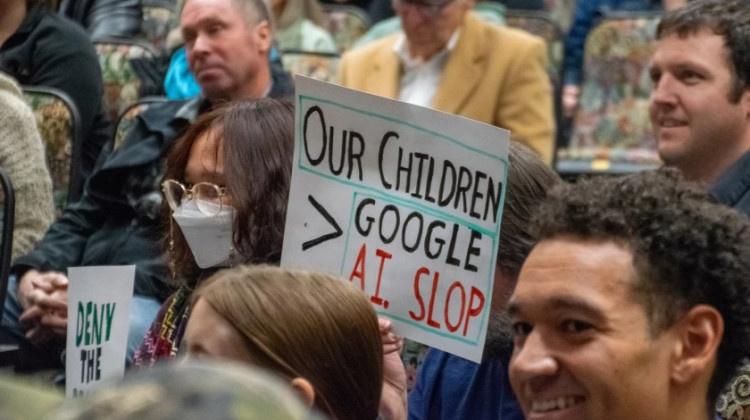Republican legislative leaders unveiled what Speaker Brian Bosma calls the “best infrastructure program” in state history.
GOP leaders say the funding package they’ve put together will eventually generate about $1.2 billion a year for state and local roads. Senate President Pro Tem David Long (R-Fort Wayne) says that plan will last the next two decades.
“We’re not kicking the can down the road like they do in Washington,” Long says.
The money is generated several different ways. There’s 10-cent gas and diesel tax hikes; there’s a new $15 registration fee for all vehicles, while large truck fees will increase by 25 percent. Electric vehicle owners will now pay a $150 annual fee; hybrids, $50.
And the package includes one of the biggest points of contention between the House and Senate: shifting the sales tax on gasoline from the General Fund to pay for roads. It’s a gradual shift, over five years, beginning in 2020. The money will be moved into a dedicated fund, one that the governor can raid to pay for other pressing needs: schools, health care, and child services.
Dennis Faulkenberg, representing the transportation construction industry, says Hoosiers should be pleased at the final deal.
“Nobody likes to pay more but I think if they’re like me and they’ve damaged their car on some bad roads, ultimately they’re going to be glad they’re driving on much better roads,” Faulkenberg says.
House Speaker Brian Bosma (R-Indianapolis) says Hoosiers should see results right away.
“We want them to start smelling asphalt in July,” Bosma says.
Rep. Dan Forestal (D-Indianapolis) says the package relies too much on future tolling.
“I also don’t think there was enough leg work done to find savings in current revenue so that we could diminish the amount of increase that had to happen,” Forestal says.
But local officials say they’re “ecstatic” with the final road funding package.
The funding plan would eventually generate about $340 million a year for local roads.
And smaller communities would get an extra boost: a current matching grant program for road funding requires locals to put up 50 percent of the money. Under the legislature’s final proposal, small communities would only have to put up 25 percent.
Matt Greller, representing Indiana cities and towns, says lawmakers have delivered on what he calls a “once in a generation opportunity.”
“I think the House and Senate leadership hit the nail right on the head. It’s hundreds of millions of dollars going back into local roads and streets and that’s exactly what we wanted,” Greller says.
Both chambers must still approve the final legislation.
 DONATE
DONATE









 Support WFYI. We can't do it without you.
Support WFYI. We can't do it without you.